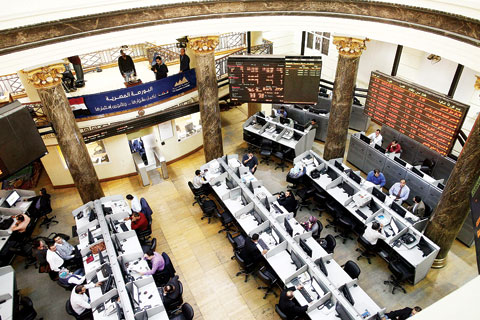CAIRO: Egypt’s Consumer Packaged Goods (CPG) market saw a decline of 10.5 percent in February 2011 from January 2011, according to a recent study conducted by The Nielsen Company.
The report specifically focused on the impact of Egypt’s January 25 Revolution, which put banks and businesses across the country at a standstill, and eventually forced Hosni Mubarak and his regime out of power after 18 days of pro-democracy protests.
“People’s main concern was to buy major vital categories such as rice, pasta, sugar, ghee and oil,” said Shadia George, Nielsen’s regional communications manager for North Africa.
“Banks were closed and people were worried to run out of cash, Also, no one knew when and how would this situation end so spending was on basics,” she added.
With an uncertain political future ahead and soaring fuel in food prices, Egyptian consumer needs saw a shift in just one month.
The study shows that the revolution’s events, which also caused the Egyptian Stock Exchange to shut down for nearly two months, have impacted consumer behavior.
Seeing a decline in concession purchases along with personal care products, Egyptian consumers, after the revolution, seemed to be more concerned with purchasing their primary necessities.
Urban consumer inflation in Egypt accelerated to 12.1 percent in April on the back of soaring food prices, and up from 11.5 percent year-on-year in March. On a monthly basis, prices increased 1.2 percent in April, Reuters reported.
“We can’t deny the major impact the revolution left on the market growth rates, however we will have to wait and see what will happen within the coming two to three months,” the study read.
Overall, in February, the country saw a decline in food purchases by 9.7 percent, while drug purchases fell even steeper by 13.6 percent.
Among the highest in decline were personal care products falling by 16.5 percent. Many people also stopped buying household products, which fell by 12.5 percent.
Groceries, however, were the least affected sector, falling by 4.6 percent while beverages fell by 10.2 percent and confectionaries plunged 17.7 percent.
When it came to beverages, powder drinks saw a 22.6 percent, energy drinks declined by 17 percent, and mineral water purchases fell by 14.9 percent.
Products like breakfast cereals, infant milk and powdered desserts were among the highest in decline in the groceries.
On the other hand, “essential grocery products were the least affected among the different sectors, especially the ones that have long shelf life,” the report read.
Cheaper products like white cheese and Egyptian halawa, which declined by 0.1 percent along with bread which declined at 0.3 percent were among the products that were least affected.
Red meat, however, which sells for around LE 65 per kilo and is among the most expensive meat products in the country, saw a decline of 3.1 percent.
Despite the declines, mineral water, cakes, gum, candy, and juices still gained growth in February 2011 versus this same time last year. Salty however, salty snacks saw a more significant decline with 20 percent.
Other confectionaries like biscuits also saw an 8 percent decline, and chocolates fell by 4 percent.
As 40 percent of the country’s population still lives under $2 dollars a day and the, the state deficit is expected to reach 9 percent this year.
Monir El-Shazly, strategy consultant and personal development trainer at Strategic Vision, said, “In February, the revolution kept many people in their homes. …As Egyptians, this was something new to all of us, unless you’re 70 or 80 years of age, most never saw a people’s revolution.
“Everything shut down…people [were] frightened. This…kept people from spending, people wanted to stock up on food items because they didn’t know what was going on or what was going to happen.
“Because large supermarkets all shut down and [some] were looted, some [smaller] shops witnessed an unexpected increase in sales. When Carrefour shut down in Alexandria, for example, smaller supermarkets started to run out of products.”


